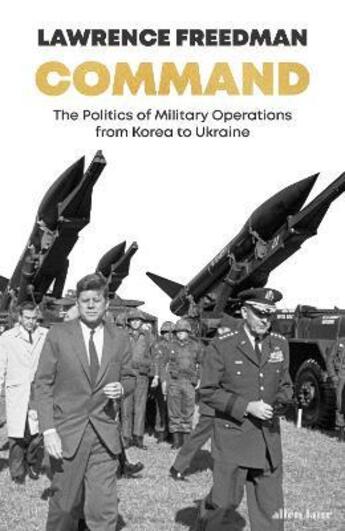-
Date de parution : 08/09/2022
-
Editeur :
Allen Lane
-
EAN : 9780241456996
-
Série :
(-)
-
Support :
Papier
-
Nombre de pages : 608
-
Collection :
(-)
-
Genre :
Histoire
-
Thème :
Histoire
-
Prix littéraire(s) :
(-)
Résumé:
Throughout history, the concept of command -- as both a way to achieve objectives and as an assertion of authority -- has been essential to military action and leadership. But, as Sir Lawrence Freedman argues, it is also deeply political. Command has been reconstructed and revolutionized since... Voir plus
Throughout history, the concept of command -- as both a way to achieve objectives and as an assertion of authority -- has been essential to military action and leadership. But, as Sir Lawrence Freedman argues, it is also deeply political. Command has been reconstructed and revolutionized since the Second World War by nuclear warfare, small-scale guerrilla land operations and cyber interference. Freedman here takes a global perspective, systematically investigating the practice and politics of command since 1945 through a wide range of conflicts from the French Colonial Wars, the Cuban Missile Crisis and the Bangladesh Liberation War to North Vietnam''s Easter Offensive of 1972, the Falklands War, the First Chechen War and the Iraq War. By highlighting the political nature of strategy, Freedman shows that military decision-making cannot be separated from civilian life and that commanders must now have the sensibility to navigate politics as well as warfare.>
Donner votre avis









